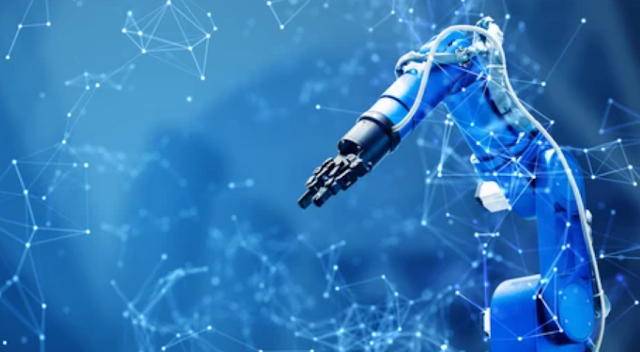How AI is Transforming Industries: A Comprehensive Overview
AI, or artificial intelligence, has been transforming industries across the globe, revolutionizing the way businesses operate and creating new opportunities for growth. This comprehensive overview will delve into the various ways AI is reshaping industries, highlighting its impact on specific sectors.
Healthcare:
AI is making significant strides in healthcare, aiding in early disease detection, personalized treatment, and drug development. Machine learning algorithms can analyze large volumes of medical data, including patient records and medical images, to identify patterns and predict potential health issues. AI-powered robots and chatbots are also being employed to provide basic patient care, monitor vital signs, and offer assistance in surgical procedures.
Finance:
The financial industry is leveraging AI for fraud detection, risk assessment, algorithmic trading, and customer service. AI algorithms can analyze vast amounts of financial data in real-time, helping detect fraudulent transactions and enhancing security. Additionally, AI-powered chatbots and virtual assistants are being used to provide personalized customer support and streamline banking operations.
Manufacturing:
AI is transforming manufacturing by optimizing production processes, improving quality control, and enabling predictive maintenance. Smart factories equipped with AI-driven systems can monitor and analyze data from sensors placed on equipment, predicting failures and scheduling maintenance proactively. This minimizes downtime, increases operational efficiency, and reduces costs. AI-powered robots are also being deployed in assembly lines for tasks such as pick-and-place operations and quality inspection.
Retail:
AI is reshaping the retail industry by enabling personalized shopping experiences, inventory management, and demand forecasting. Recommendation systems powered by AI algorithms analyze customer data to provide personalized product suggestions, enhancing customer satisfaction and driving sales. AI-powered chatbots and virtual assistants are being used for customer service, responding to queries, and assisting with purchase decisions. AI also plays a crucial role in optimizing supply chains, predicting demand, and improving inventory management.
Transportation:
AI is revolutionizing transportation through the development of autonomous vehicles and smart traffic management systems. Self-driving cars and trucks are being tested and deployed, offering improved safety and efficiency on the roads. AI algorithms analyze traffic patterns, weather conditions, and real-time data to optimize routes, reduce congestion, and enhance the overall transportation experience. Additionally, AI is used in logistics and supply chain management to optimize delivery routes and streamline operations.
Agriculture:
AI is transforming agriculture by providing precision farming techniques, crop monitoring, and yield prediction. Drones equipped with AI-powered image recognition systems can monitor crops, detect diseases, and optimize irrigation and fertilizer usage. AI algorithms analyze data from various sources such as weather forecasts and soil sensors to predict crop yields and optimize farming practices. This enables farmers to make data-driven decisions, increase productivity, and reduce resource wastage.
Energy:
AI is playing a significant role in the energy sector by optimizing energy generation, improving grid management, and promoting energy efficiency. AI algorithms can analyze vast amounts of data from power plants, weather conditions, and consumption patterns to optimize energy generation and distribution. Smart grids equipped with AI-driven systems can monitor and control electricity flow, detect faults, and enable dynamic pricing. This leads to improved energy management, reduced costs, and increased sustainability.
In summary, AI is transforming industries by leveraging advanced algorithms and data analysis techniques. From healthcare and finance to manufacturing, retail, transportation, agriculture, and energy, AI is driving innovation, improving efficiency, and revolutionizing the way businesses operate in various sectors. As technology continues to advance, the potential for AI to reshape industries and create new opportunities for growth is immense.












